Sound sleep is essential for everyone.
It deeply affects your ability to recuperate both psychologically and physically.
It affects all elements of your life since it influences how we think, learn, conduct, feel, and interact with others.
Some folks have no trouble sleeping. Many individuals, on the other hand, have significant trouble falling and keeping asleep throughout the night.
Small modifications to your sleeping regimen may assist you in falling asleep sooner.
Table of Contents
How Much Time Should It Take to Fall Asleep?
A nutritious sleep latency period is usually between 15 and 20 minutes. This time does not cover pre-sleep nighttime rituals like showering, brushing your teeth, or meditating, but rather the time spent attempting to sleep once you are in bed.
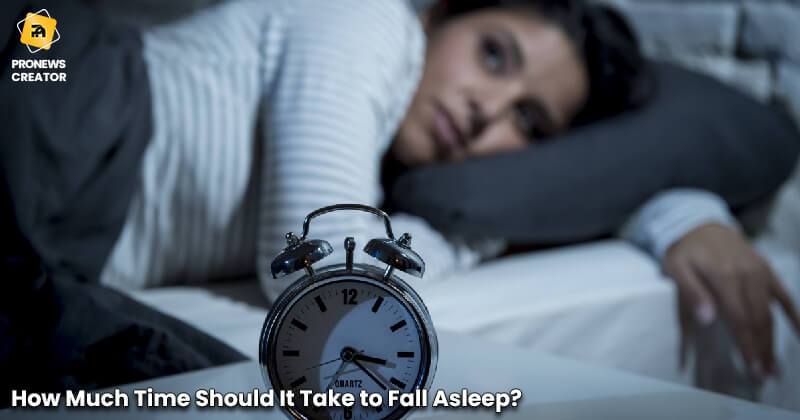
Why can’t I sleep at night?
Stress is a common cause of chronic insomnia. Work, school, health, finances, or family concerns might keep your thoughts active at night, making it hard to sleep.
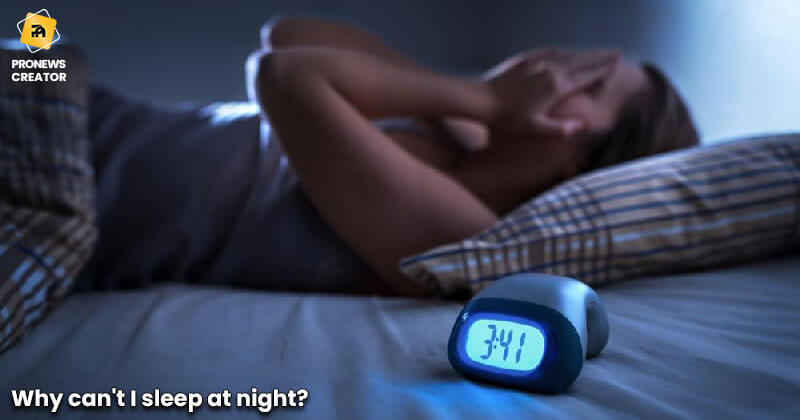
Summary of the 14 Tips for a better sleep
Here are some crucial elements to consider and get a decent night’s sleep.
1. Do exercise
If exercising immediately before bed keeps some people awake due to overstimulation, exercising in the morning or during the day undoubtedly improves the quality and duration of sleep.
Eight weeks of aerobic exercise can dramatically improve sleep quality in middle-aged women.

2. Keep track of what and when you eat
The food you eat before going to bed may affect your sleep. High-carbohydrate meals, for example, have been found in studies to be hazardous to a good night’s sleep.
A high-carb diet may help you fall asleep sooner, but it will not provide restful sleep. High-fat meals, on the other hand, may encourage deeper and more comfortable sleep.

3. Keep noise to a minimum
Noises above 50dB will reduce your total amount of sleep time.
Even if you believe you have grown acclimated to the continual sounds in your environment, your body still perceives and responds to them.
Low-frequency noises can also affect sleep quality by lengthening the time it takes to fall asleep and making you weary in the morning.
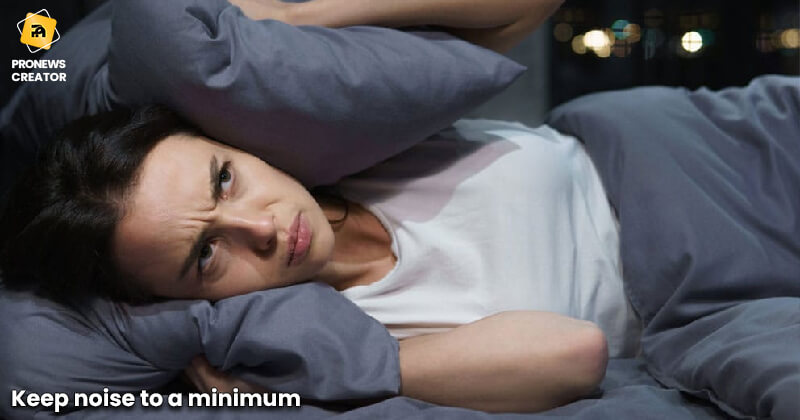
4. Employ the 4-7-8 breathing technique
To begin, position the tip of your tongue behind your top front teeth.
Make a “whoosh” sound as you exhale completely through your mouth.
Close your mouth and take a deep breath through your nose while mentally counting to four.
Take a deep breath and mentally count to seven.
Exhale thoroughly through your mouth, generating a “whoosh” sound and mentally counting to eight.
Repeat this process at least three times more.

5. Experiment with Imagery
Imagery is a mental practice that might help you relax before going to bed. To practice imaging, imagine a serene and cheerful image from your past and try to paint it in your mind, down to the finest details. Consider the following scenarios:
| Going for a walk on the beach | Floating in the water |
| Lying by a babbling brook | Watching the sunset |

6. Avoid taking naps during the day
People with insomnia are drowsy throughout the day due to their lack of sleep at night, which commonly leads to daytime napping.
While short-term naps have been related to increased alertness and well-being, there is disagreement about the impact of napping on overnight sleep.
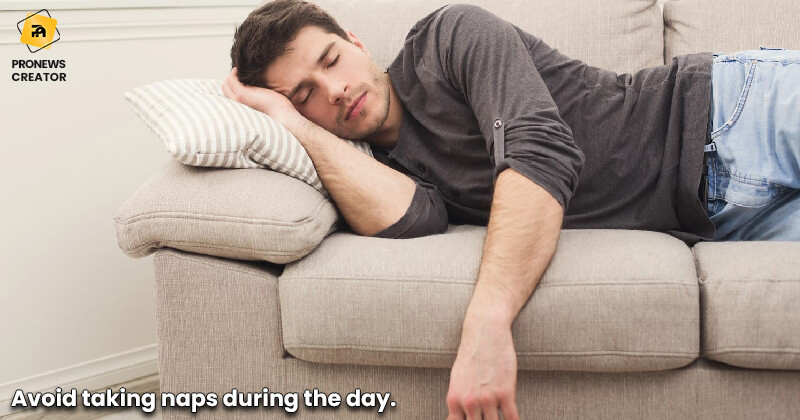
7. Meditation
Meditation strategies for getting restful sleep may assist you in falling asleep quickly. Mindfulness meditation, in particular, has produced encouraging benefits.
Mindfulness practiced before night may minimize ruminating and make it easier to get rid of negative emotions in preparation for sleep.

8. Take a hot bath or shower
Bathing or showering can be calming and help the body prepare for sleep. It can also aid with temperature regulation before going to bed.
Doing this for at least 10 minutes 1-2 hours before sleep may be advantageous.

9. Turn off all electronic devices
Late-night use of electronic gadgets is detrimental to sleep.
Watching TV, playing video games, using a cell phone, and socializing can all make it hard to fall — and remain — asleep.
It is due in part to the fact that electronic devices emit blue light, which can decrease melatonin production.
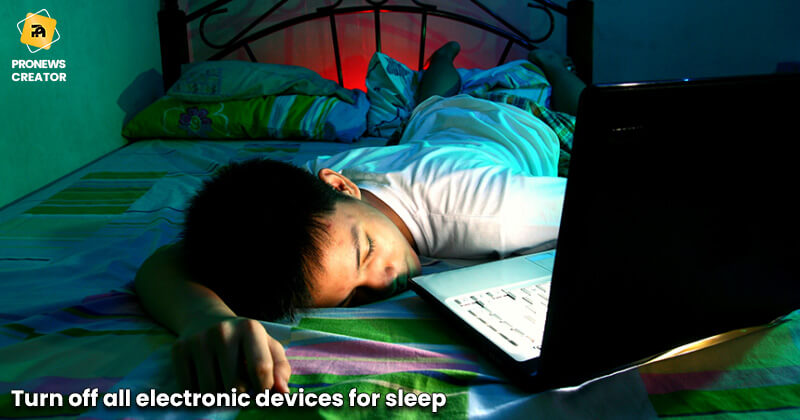
10. Locate a comfortable position
Sleeping in a comfortable position is crucial. Changing positions can be distracting, but finding the proper place can make a difference in the onset of sleep.
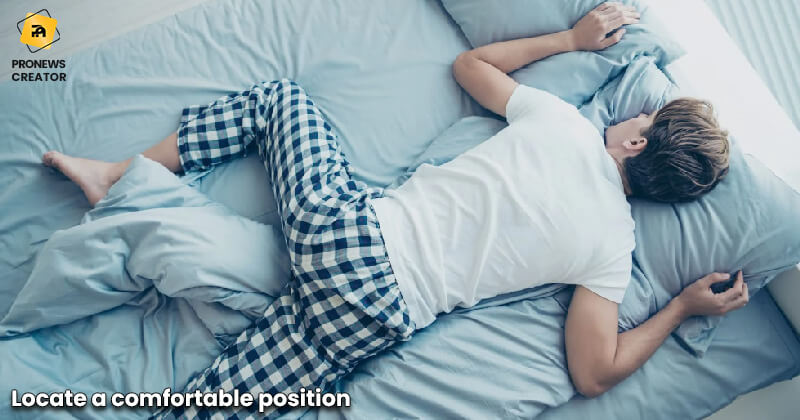
11. Relax your mind
Even if it’s difficult, don’t bring your job life, problems, or memories of terrible occurrences to bed with you.
Rumination (repeating the same thought or problem) has induced a negative mood that interferes with sleep.

12. The Military Approach
Sit comfortably and relax each region of your face, including your eyelids, jaw, lips, and brow.
Allow your arms to rest at your sides, first lowering your shoulders.
Begin to relax your chest by taking deep breaths.
Begin by relaxing your lower half, making your way through each section of your leg to your feet.
Visualise a serene environment to relax your thoughts, such as gorgeous farmland, a peaceful lake, or a cosy area in your home.

13. Try aromatherapy
People use aromatherapy to produce relaxation and sleep.
Lavender oil is a popular option for promoting sleep. However, the data is conflicting, and the efficacy may vary depending on how the oil is delivered, such as topically vs inhalation.

14. Do not force yourself to sleep
If you can’t sleep and are lying awake, don’t try to force it. If you are exhausted and appreciate the sensation of resting, sleep may take over spontaneously.
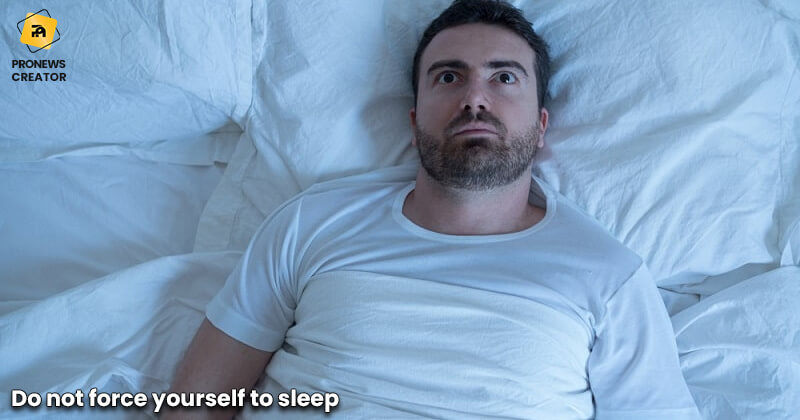
How can I sleep better on my own?
| Drink plenty of water | Exercise |
| Make use of melatonin supplements | Maintain your cool |
| Go completely dark |

What is the most beneficial type of sleep?
While all stages of sleep are essential for optimal health, deep sleep has distinct physical and mental advantages. Your body releases growth hormones during deep sleep and works to develop and repair muscles, bones, and tissue.

Conclusion
Good sleep is a matter you frequently overlook, although it is a vital element of your daily life.
Using the tactics described above can help you sleep quickly, sleep well, and have more energy the next day.
You can increase the quality of your sleep without having to seek a prescription.
If your sleep latency exceeds the normal range, it may be beneficial to discuss your concerns with your doctor.


